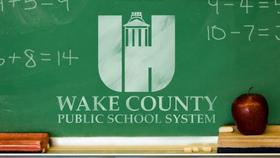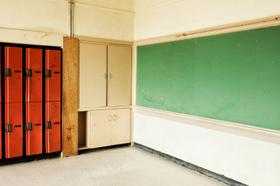School holidays have become a focal point in some Florida school districts of late, as a Muslim organization has asked school administrators to consider adding two Muslim holidays to the school calendar next year. The request, which is under serious consideration by the school board, is not without its share of controversy. This is particularly true in light of the fact that many schools have done away with all holidays containing religious roots. Should Muslim holidays be recognized by U.S. public schools? Read on for information from both sides of the issue.
Details of the Request
The request to add Muslim holidays to the Florida school calendar was made by the Council on American Islamic Relations (CAIR). The request has been directed to the Broward School District Diversity Committee. CBS Miami reports that two holidays are included in the request: Eid al-Fitr (the end of Ramadan) and Eid-al-Adha (the end of Hajj, the annual pilgrimage to Mecca). Both of the holidays fall on different days each year, depending on the lunar calendar.
Members of CAIR argue that Muslim students who celebrate these holidays with their families are forced to choose between their religion and their academic responsibilities. In some cases, students must miss examinations or other important classwork to stay home for the holiday. The school district currently allows students an excused absence if they take off days for the holidays. However, those urging for school closure say the excused absence does little to curb stress when students miss significant events at school that day.
“There may be test schedules. Sometimes FCAT [standardized, statewide testing] falls in the time of the religious holidays,” Ghazala Salam, community relations director for CAIR in Florida, told CBS Miami. “It really puts a lot of stress on students. They’re caught between a rock and a hard place. Do they stay out for the religious holiday if they have an exam or a new lesson?"
Scheduling the Holidays
Eid-al Adha occurs during the fall months, with the holiday scheduled for October 15 on the 2013 calendar, according to the Huffington Post. Eid al-Fitr happens during the summer months, and it won’t conflict with a school calendar until 2017. Salam has proposed moving a teacher workday to the date for Eid-al Adha, particularly in light of the fact that this holiday does not have a set date on the calendar.
CAIR’s executive director, Nezar Hamze, explained to the Huffington Post that the request is not for a full shutdown of the district. Instead, the group simply wants students to get the holidays off, so they can celebrate with their families without concern about missing significant events at school. Because schools already schedule a number of workdays for teachers throughout the year, this would be more about becoming cognizant of when the holidays occur and scheduling those days off accordingly.
This video looks at the question of whether schools should close for Muslim holidays.
Other Holidays Recognized by School District
In the past few years, Broward County schools have closed for Good Friday, Yom Kippur, and Rosh Hashanah every year, and Hanukkah and Passover much of the time. Schools are also closed over Christmas for their mid-year winter break. However, the school district cites the high number of students that don’t attend school on these days as the primary reason for the closures. The school system does not officially recognize any of these religious holidays. As the Muslim population in the U.S. continues to grow, members of CAIR claim that there is now a high enough rate of absenteeism to warrant closing schools for these two Muslim holidays as well.
A recent study created by CAIR found that there are currently 17,721 Muslims under the age of 18 living within the confines of Broward County. Another recent poll, conducted by Emerge USA, found that 89 percent of Muslim, Arab-American, and South Asian Broward residents keep their children home from school on these Muslim holidays. Hamze also told the Huffington Post that he has received hundreds of complaints from Muslim parents because their children have to miss a day or two of school each year to recognize their religious holidays.
Opposition to the Proposal
Not surprisingly, there is plenty of opposition to this proposal in Broward County. A recent meeting of the Diversity Board was heated as those in favor and opposed to the proposal met head-on. Individuals who are against closing schools on these Muslim holidays have a variety of reasons for their opposition.
“It’s another step toward the Islamization of our children,” Fort Lauderdale Tea Party founder Danita Kilcullen stated in the Chicago Tribune. “This is a Judeo-Christian nation,” Kilcullen added.
Others were not opposed to the fact that the holidays were Muslim as much as the fact they were religious in nature. These individuals cited the separation of church and state as the reason for their opinion. As the Moral Liberal states, “Breaks in Broward County are secular, so as not to favor or offend any religion.”
This video reports on public schools considering closing for Muslim holidays.
The school district has stated that while it is not opposed to looking at the possibility of adding the Muslim holidays to the school calendar, there is concern that this move could open the door for other religious groups to clamor for their own days off as well.
“We make accommodations, but we may not be able to close the district,” Broward County Superintendent Robert Runcie told CBS Miami. “If we do that for everybody and every cause out there, even though they’re all valid, we would literally have a problem squeezing in the number of instructional days we need.”
Questions? Contact us on Facebook. @publicschoolreview















